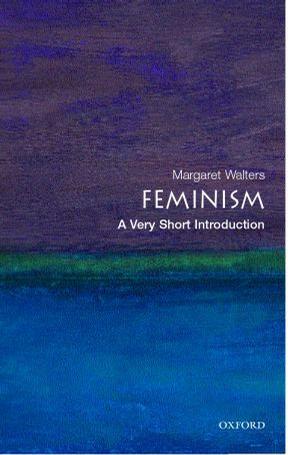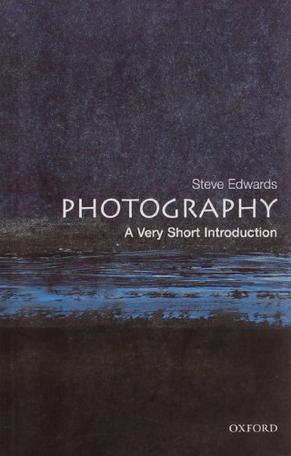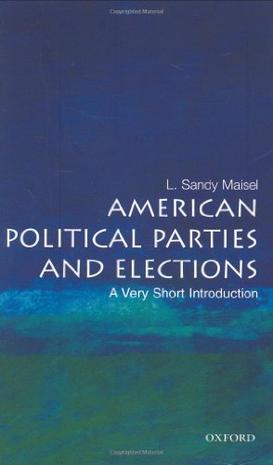-

Feminism
This is an historical account of feminism, looking at the roots of feminism, voting rights, the liberation of the sixties, and analysing the current situation of women, across Europe and the United States, and elsewhere in the world (in particular in Third World countries). Walters examines the difficulties and inequities that women still face, more than forty years after the 'new wave' of 1960s feminism -- difficulties, particularly, in combining domesticity, motherhood and work outside the house. How much have women's lives really changed? In the West women still come up against the 'glass ceiling' at work, most earning considerably less than their male counterparts. What are we to make of the now commonplace insistence that feminism deprives men of their rights and dignities? And how does one tackle the issue of female emancipation in different cultural and economic environments - in, for example, Islam, Hinduism, the Middle East, Africa, and the Indian sub-continent? -

Photography
Photographs are an integral part of our daily lives from sensationalist images in tabloid papers and snapshots, to art photography displayed in galleries and sold through international art markets. In this thought-provoking exploration of the subject, Edwards combines a sense of the historical development of photography with an analysis of its purpose and meaning within a wider cultural context. He interrogates the way we look and think about photographs, and considers such issues as truth and recording, objectivity and fine art, identity and memory. -

American Political Parties and Elections
Few Americans and even fewer citizens of other nations understand the electoral process in the United States. Still fewer understand the role played by political parties in the electoral process or the ironies within the system. Participation in elections in the United States is much lower than in the vast majority of mature democracies. Perhaps this is because of the lack of competition in a country where only two parties have a true chance of winning, despite the fact that a large number of citizens claim allegiance to neither and think badly of both. Or perhaps it is because in the U.S. campaign contributions disproportionately favor incumbents in most legislative elections, or that largely unregulated groups such as the now notorious 527s have as much impact on the outcome of a campaign as do the parties or the candidates' campaign organizations. Studying these factors, you begin to get a very clear picture indeed of the problems that underlay our much trumpeted electoral system. This Very Short Introduction introduces the reader to these issues and more, providing an insider's view of how the system actually works while shining a light on some of its flaws. As we enter what is sure to be yet another highly contested election year, it is more important than ever that Americans take the time to learn the system that puts so many in power. -

Geopolitics
Geopolitics is a way of looking at the world: one that considers the links between political power, geography, and cultural diversity. In certain places such as Iraq or Lebanon, moving a few feet either side of a territorial boundary can be a matter of life or death, dramatically highlighting the connections between place and politics. Even far away from these 'danger zones' - in Europe or the US for example - geopolitics remains an important part of everyday life. For a country's location and size as well as its sovereignty and resources all affect how the people that live there understand and interact with the wider world. Using wide-ranging examples, from historical maps to James Bond films and the rhetoric of political leaders like Churchill and George W. Bush, this Very Short Introduction shows why, for a full understanding of contemporary global politics, it is not just smart - it is essential - to be geopolitical. -

International Relations
Of undoubtable relevance today, in a post-9-11 world of growing political tension and unease, this iVery Short Introduction/i covers the topics essential to an understanding of modern international relations. Paul Wilkinson explains the theories and the practice that underlie the subject, and investigates issues ranging from foreign policy, arms control, and terrorism, to the environment and world poverty. He examines the role of organizations such as the United Nations and the European Union, as well as the influence of ethnic and religious movements and terrorist groups which also play a role in shaping the way states and governments interact. This up-to-date book is required reading for those seeking a new perspective to help untangle and decipher international events. -

Nationalism
This book examines the political and moral challenges that face the vast majority of human beings who consider themselves to be members of various nations. It explores nationality through the difficulties and conflicts that have arisen throughout history, and discusses nations and nationalism from social, philosophical, and anthropological perspectives. In this fascinating Very Short Introduction, Steven Grosby looks at the nation in history, the territorial element in nationality, and the complex ways nationality has co-existed with religion, and shows how closely linked the concept of nationalism is with being human.